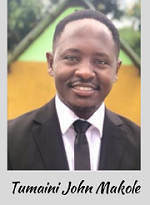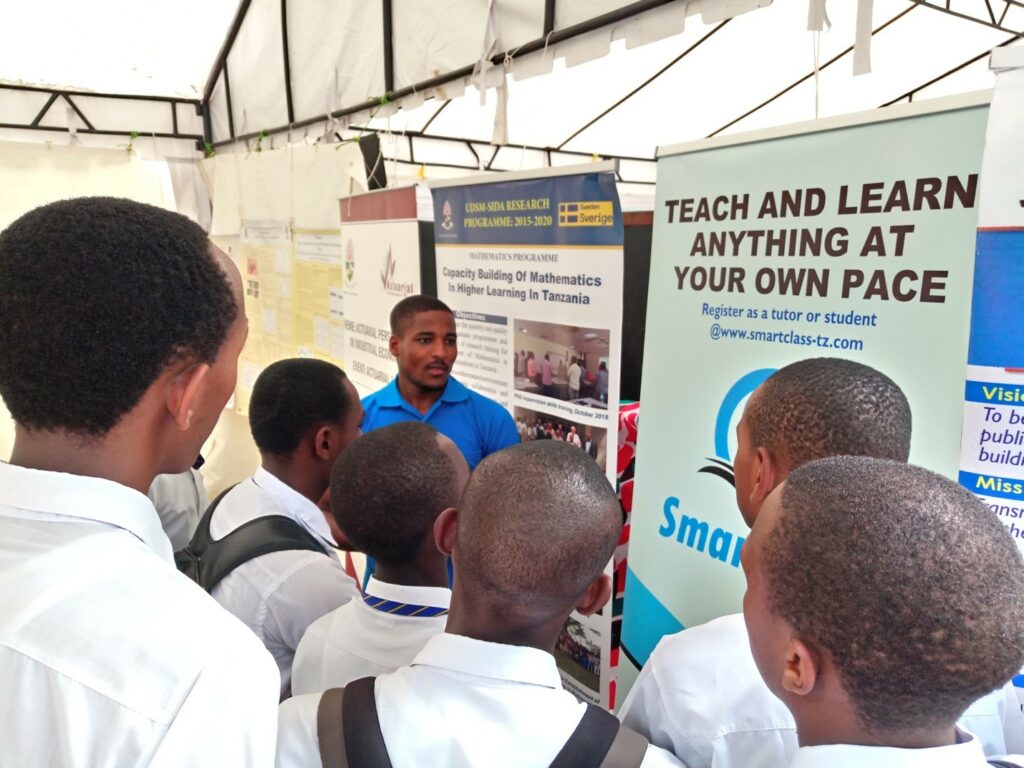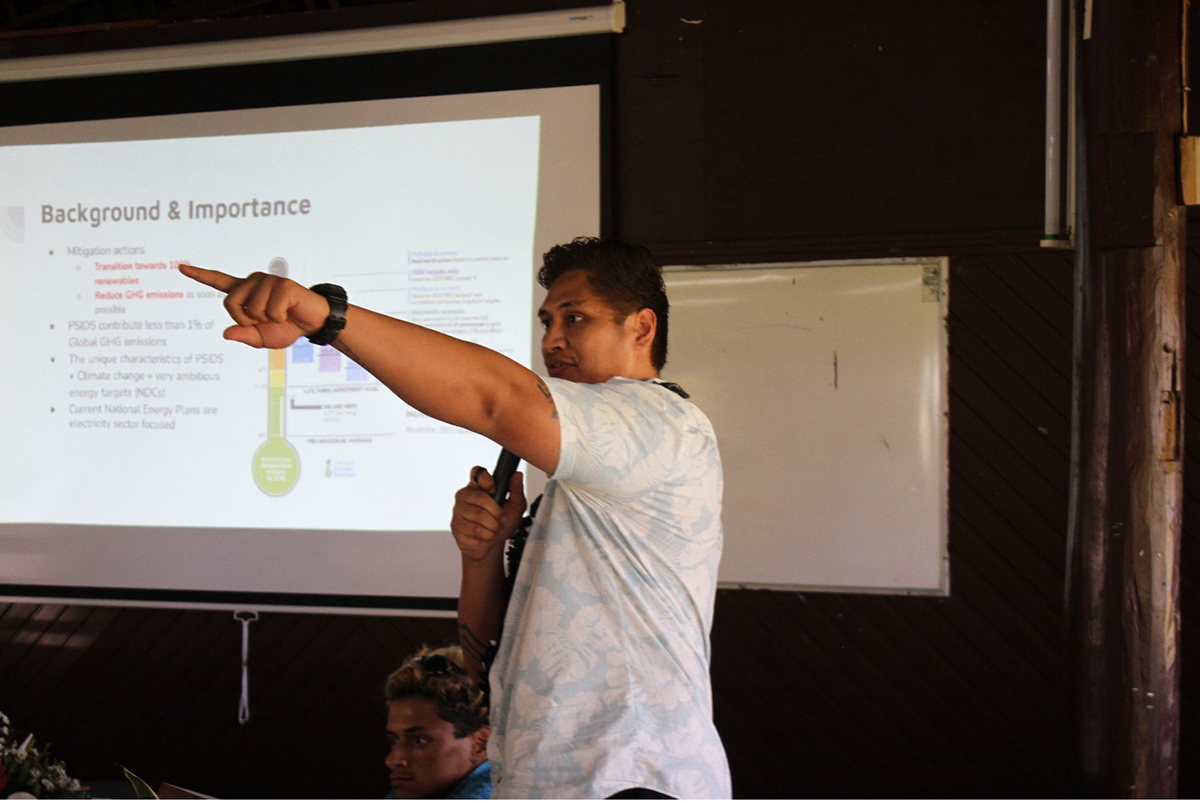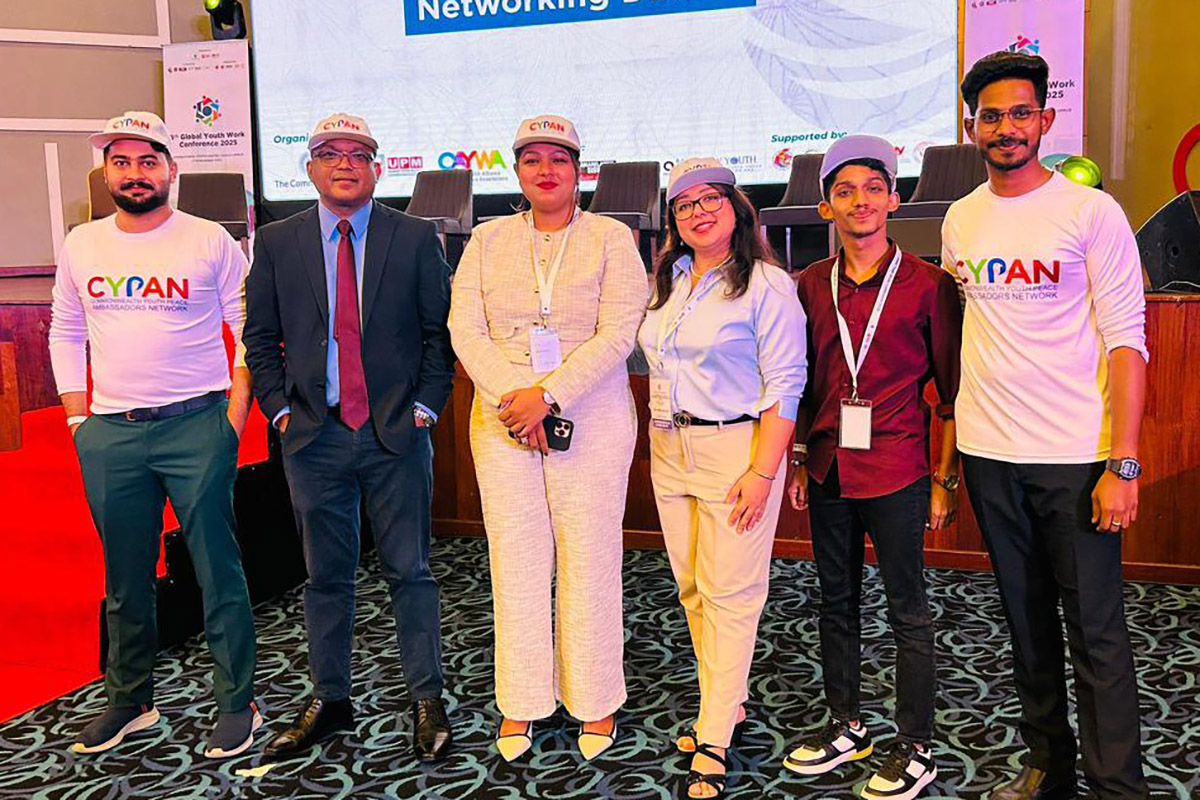Bringing the classroom to students in East Africa
April 29
It is in times like these that an idea like Salvatory Kessy’s online education platform really shines. Salvatory, from Tanzania, is the founder of SmartClass, a platform which matches low-cost qualified and vetted tutors to students interested in learning basic skills such as numeracy, literacy, computing, agriculture and languages. Commonwealth Correspondent Tumaini John Makole from Dodoma, Tanzania caught up with Salvatory, one of the 16 finalists in this year’s Commonwealth Youth Awards to hear about this idea whose time has truly come.
Tell us a bit about your background.
Before I started my undergraduate degree at the University of Dar es Salaam, I spent some time providing tuition in Moshi. I helped a lot of students in mathematics and made some good money, which supported me in university. I was able to buy my personal computer from my own savings from tutoring students.
As an assistant lecturer of mathematics at the University of Dar es Salaam, I often met parents who asked me to recommend qualified and certified tutors to help their children in mathematics and other science subjects. Through this, I realised that there was a great need for private tutoring in Tanzania.
How did the idea for SmartClass come about?
After I graduated from university, I thought ‘why not continue to teach students through tuition’? The first challenge was that I was in a new town where most students didn’t know me. I knew it would take some time to get students to tutor. Secondly, I had no money to rent a building—that’s when the idea of teaching students online came to me.
Again, while I was studying towards my master’s degree in the UK, I met a couple of people who wanted to learn Kiswahili. I taught some of them. However, the question was how would I keep teaching more students when I graduated and went back home? The solution was through online classes. I formed a team with my friends and started the online platform.
How does SmartClass work?
SmartClass uses computer algorithms and artificial intelligence to match students to low-cost qualified, certified, and vetted tutors based on their learning needs. SmartClass also enables face-to-face tutoring, either one-on-one or in groups.
Due to the low levels of internet access in Tanzania, SmartClass has developed an offline option where learners can request for the nearest tutor via SMS.
Through the platform, www.smartclasstz.com and www.smartclass.co.ke for Tanzania and Kenya respectively, a pool of teachers who have been interviewed and thoroughly vetted offer their services to learners, providing a source of income to low- and middle-income tutors while improving education for students.
SmartClass tutors work with students aged between four and 18 years old (K–12 learners) with a focus on academics, IT, exam preparations, language learning, vocational education, dance, and music.

What impact has SmartClass had so far?
In the first year, SmartClass achieved a great deal, becoming a leading platform for Tanzanians to book qualified and certified tutors both online and offline.
Over the past year, SmartClass has helped boost education in Tanzania. Our prime goal in 2020 is to collaboratively work with the government and other educational players to provide access to quality education for all Tanzanians.
The performance in mathematics, sciences, and English of more than 10,000 SmartClass-registered students has improved by more than 50 per cent.
Parents are also happy to see their children tutored in the safety of their homes. One parent sent a message saying: “Thank you for sending your tutor at my home to help my child learn. For sure SmartClass you are doing a great job. The teacher is very friendly, and my child is enjoying learning. Now, I can hope the best for my child, thank you SmartClass”.
What is your vision?
My goal is to use the latest advanced technologies to revolutionise the way people teach and learn in East Africa.
SmartClass’s educational model ensures no one is left behind in learning. Together with the Tanzanian government, other educational players, and advanced technologies, we are building up an inclusive educational model that allows anyone to learn anything, anytime, anywhere.
An inclusive educational model that offers quality education means a better future for everyone.
SmartClass aims to break through barriers to learning, enhance learning methods to improve students’ outcomes and results, as well as drive efficacy in learning through live interactions. We believe that the most effective way to learn is through personalised learning experiences. Analytics and advanced algorithms match students with best-suited tutors.
Our business model also allows SmartClass to subsidise underprivileged students. So far, we have subsidised more than 2,000 students. We do this by allowing students to form a group of up to 10 students, book a tutor and share the fee.
Unemployment is a big challenge in Africa. What jobs or opportunities does SmartClass provide?
SmartClass has generated new jobs for more than 5,000 active registered tutors. The tutors earn a passive income of $240 per month on average. This has substantially improved the standard of living of the tutors and their families.
What are some of the business challenges you are facing or anticipate you will face as SmartClass grows?
Despite the milestones, SmartClass still faces some challenges such as limited funding, and market-related issues.
Firstly, there is always the question on the right balance between supply and demand. When demand exceeds supply, you can lose customers. When it is the other way round, it leads to under-utilisation of supply.
Secondly, the pricing of our services is among the most affordable in the industry. But the critical aspect is to maintain the high quality of tutoring services at affordable rates. So far, we have been able to deal with this challenge well.
What are your future plans?
Our major task this year will be reaching more of our clients by adopting more aggressive marketing strategies. As always, we plan to boost our customer satisfaction by providing quality services.
Moreover, our IT team has been working to implement some cool features on the platform based on our customers’ feedback. Stay tuned to see what SmartClass has in store!
In 2020, SmartClass is planning to launch SmartClass Kenya. There is high demand for private tutoring in Kenya and at 89.7 per cent, internet access is good. SmartClass team has done extensive research and we are now finalising the process to launch. Uganda is our next destination and we hope to launch there in late 2020.
Any advice to young entrepreneurs and other start-ups?
It can be done! You just have to start with the resources you have at the time. I remember we started with very little resources–but as time has gone by, we are attracting more resources that help us to keep growing and realising our vision.
Also, don’t worry too much about perfecting your ideas at the start. Just start–and the idea will evolve and become better over time.
Furthermore, you have to learn as much as you can about your business. This is very important as it will give you ideas on better ways to do business. You can learn from reading a lot of books or articles or by interacting with people who are experienced in the field you are working in. You can also learn a lot from customers’ feedback.
Finally, hard work, persistence and being curious are very important for your business to grow and be sustainable. In short, you should be dynamically learning from your business every day and improving it.
Salvatory was nominated for his contribution towards Sustainable Development Goal (SDG) 4 – Quality Education.
………………………………………………………………………………………………………………………………………………………
The Commonwealth Youth Awards for Excellence in Development Work highlight the contributions of young people who are making a difference in their communities and celebrate their contributions to the Sustainable Development Goals (SDGs).
……………………………………………………………………………………………………………………………………………………………
About me: I have worked in the pharmacy profession in various institutions including Muhimbili National Hospital, the Pharmacy Council of Tanzania as well as the Ministry of Health, Community Development, Gender, Elderly and Children under the Office of Chief Pharmacist. I am interested in Public Health, Pharmacovigilance and Medicine Regulatory Affairs. Follow me at Twitter: @TumainiMakole or Instagram: tumainimakole
……………………………………………………………………………………………………………………………………………………………
Opinions expressed in this article are those of the author and do not necessarily represent the views of the Commonwealth Youth Programme. Articles are published in a spirit of dialogue, respect and understanding. If you disagree, why not submit a response?
To learn more about becoming a Commonwealth Correspondent please visit: http://www.yourcommonwealth.org/submit-articles/commonwealthcorrespondents/
……………………………………………………………………………………………………………………………………………………………




